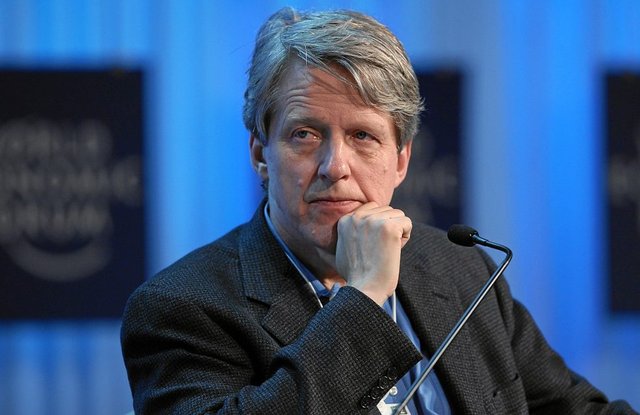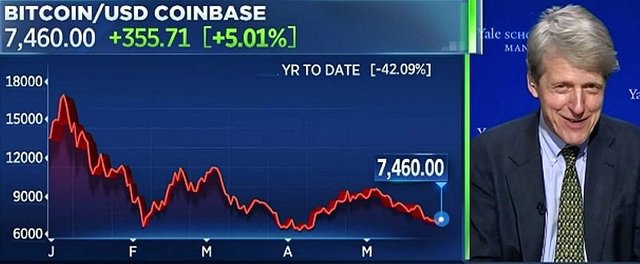Economist Robert Shiller Predicts Dark Future for Bitcoin

Robert Shiller, the winner of the 2013 Nobel Prize for Economics, has decided to go after Bitcoin again. However, he welcomed the excitement of crypto-currencies - a craze that could lead to interesting innovations.
It's hard to know if Robert Shiller, the winner of the 2013 Nobel Prize for Economics, has understood that the many "hard forks" that have occurred in recent months around the Bitcoin network did not change its profound nature, nor the distribution of the offer of BTCs.
"I think Bitcoin will not look like it is today," Shiller told CNBC. "It will have a different name, if it still exists. We have seen many "hard forks", which have modified and re-modified. It will be a matter of dispute, whether it continues to exist or not.
However, Shiller believes that the first cryptocurrency could record a new bullish period ... before collapsing.
"One of the possible scenarios is similar to what happened in 2013, when Bitcoin had reached the $ 1,000, before losing 80% of its value," he said. "It seemed like he was about to disappear."
The economist, however, admitted he could be wrong about this market, known for its high volatility.
"You know, it's so hard to predict those things. I do not want to be scornful of Bitcoin, but it really makes me think of a bubble. "

In spite of unhelpful predictions, Mr. Shiller praised the spirit of innovation created by the cryptocurrency ecosystem:
"It excites people, and they design all sorts of crypto-currencies," he said. "There are now several thousand of them, so there can be some interesting innovations."
The economist also said that one of his students had recently asked him if he could, during the final exam, leave his laptop on to continue to trade cryptocurrencies:
"It's a first for me. It shows real enthusiasm, "he said with a smile. "I said," Okay, if it's so important to you, you can trade during the final exam. "
Robert Shiller is one of three individuals to jointly receive the Nobel Prize in Economics in 2013 for his work on the detection of financial bubbles. The man is known for taking a hard look at crypto-markets, and does not hesitate to intervene in the media to offer his point of view about them.
An antisystem image
Last April, Shiller said the popularity of Bitcoin was an ephemeral folly fueled by the hype surrounding the asset. He added that such enthusiasm was not based on sound financial fundamentals.
"It has absolutely no value - except the collective agreement that it would have value. Other assets, such as gold, would still have some value if people did not see it as an investment vehicle, "he said, adding that he" did not know what to do with Bitcoin ".
According to Mr. Shiller, the success of crypto-currencies would be primarily related to their anti-system image:
"I think it's partly political," he said. "Many people no longer trust the government, and they like to know that these assets do not come from him. They were designed by a true computer expert. It's a beautiful story for today's markets. "
Bitcoin at 250,000 dollars in 2022?
The latter estimates that Bitcoin could cross the threshold of $ 250,000 in 2022.
In 2014, he decided to offer 30,000 BTCs at $ 600 a piece, while the cryptocurrencies were even more confidential than they are today. With a current price of about $ 7,500, the billionaire now holds $ 225 million worth of digital assets.
References: NCC, CNBC